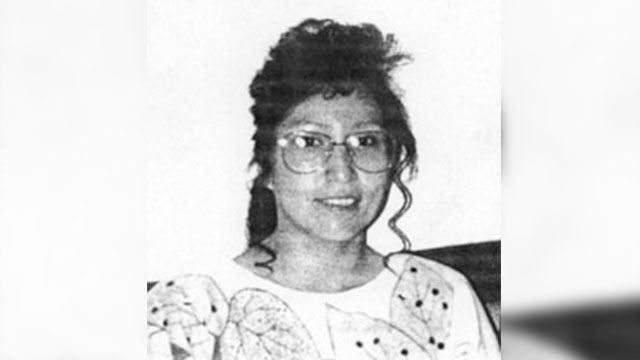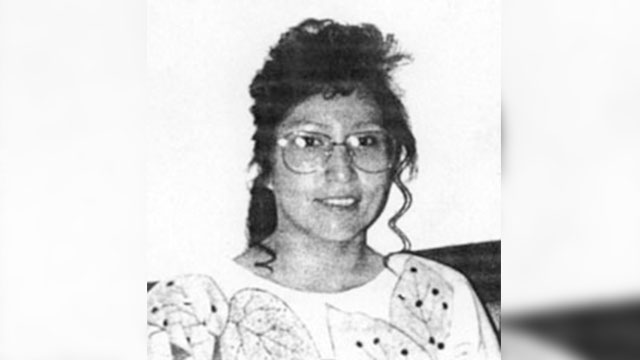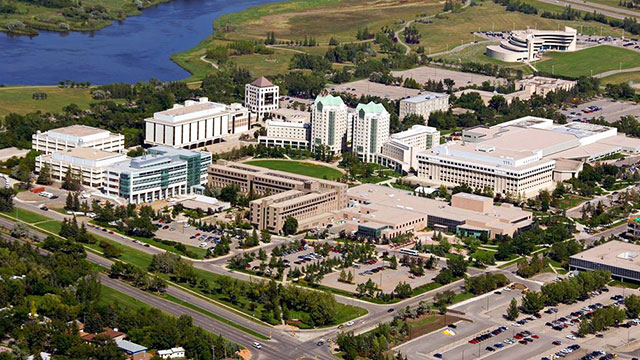

The Canadian Press
The University of Regina says it would be against its principles to cancel a lecture by a celebrated Canadian poet who has worked with a convicted killer of an Indigenous woman.
Richard Kleer, who is dean of the university’s faculty of arts, says George Elliott Clarke was invited to deliver the Woodrow Lloyd Lecture later this month.
Kleer says some have taken issue with the fact that Clarke has edited poetry by Stephen Brown, who changed his name from Steven Kummerfield.
Kummerfield was convicted of manslaughter in the 1995 beating death of Pamela Jean George – a case that underscored racism Indigenous people face in Saskatchewan. He was released on parole in 2000 after serving four-and-a-half years of a six-year sentence.
Kleer says the faculty was unaware of Clarke’s relationship with Brown when it first extended the invitation, but it stands by its decision.

(The University of Regina campus in the Saskatchewan capital. APTN file)
However, the Federation of Sovereign Indigenous Nations (FSIN) is calling on the university to cancel the event.
“Pamela George was lured away like prey and then viciously murdered and the lenient sentence that both of her killers received is an ongoing travesty of justice,” said Heather Bear, vice chief of the Indigenous advocacy organization based in Saskatoon.
“She was a mother, daughter, sister and aunty and as First Nations woman and mother and alumni of the First Nations University and the University of Regina, I am disgusted, disheartened and hurt that University officials would consider promoting – even indirectly – this murderer’s work or even to allow the potential of it to be read aloud publicly within the community that still mourns her death.”
Bear said in a statement she was living in Regina when the trial happened and it remains “a painful memory. I have met the daughter that these men left without a mother and seen the very real impact this injustice has had on this family. We hope her family is receiving the necessary supports as this story makes its way through the media.”
FSIN Chief Bobby Cameron panned the university’s decision to proceed.
“This talk is about reconciliation but there was no consultation with First Nations elders or leadership in the area about the potential subject matter,” he added in the FSIN statement.
“This is a complete failure on behalf of the University and its board.”
Kleer says Clarke, who has Indigenous ancestry, is a champion of social justice and that the faculty looks forward to hearing his message against racism and violence.
He said neither Clarke nor the university condone Brown’s “heinous crime.”
“In fact, they both fully support the Truth and Reconciliation Commission’s Calls to Action, including publicly acknowledging and condemning any violence directed towards Indigenous women and girls in Canada. Having Clarke speak at the University is witness to that commitment,” Kleer said in a statement Thursday.
“Furthermore, and as a matter of principle, denying someone a speaking platform, or censoring their message, simply because they have had a working relationship with a convicted criminal goes against everything a university should stand for.”
Kummerfield and Alex Ternowetsky were caucasian university students from Regina when they were charged with first-degree murder. A jury convicted them of the lesser offence of manslaughter after a six-week trial.
George was from the Sakimay reserve, 140 kilometres east of Regina.
The 28-year old was the single parent of two children.
With files by Kathleen Martens










